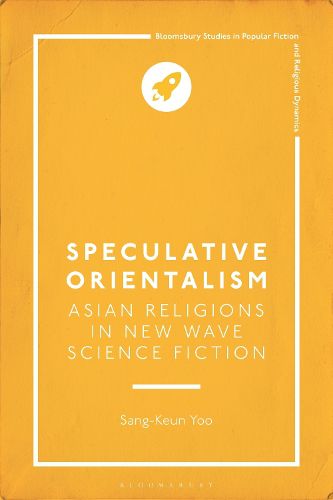Readings Newsletter
Become a Readings Member to make your shopping experience even easier.
Sign in or sign up for free!
You’re not far away from qualifying for FREE standard shipping within Australia
You’ve qualified for FREE standard shipping within Australia
The cart is loading…






Examining the works of prominent New Wave science fiction authors from the 1950-1960s, Sang-Keun Yoo highlights the underexplored connection between American science fiction and Asian religions, such as Taoism, Buddhism, and Hinduism.The book considers how the major world wars of the 20th century-Second World War, the Cold War, and the Vietnam War- repositioned Asian culture in relation to the science fiction genre in the period.
Underpinning this study, Sang-Keun Yoo argues that "Speculative Orientalism" emerged in American science fiction during the 1950s and 60s. This concept adopted various aspects of Asian religions to envision alternative worlds, unburdened by the constraints of colonialism, totalitarianism, racism, and sexism present in contemporary American society.
Bringing fresh perspectives to the works of William S. Burroughs, Philip K. Dick, Ursula K. Le Guin and Samuel R. Delany, this book offers an insightful examination of the role of Asian religions in American science fiction and their impact on the genre's history.
$9.00 standard shipping within Australia
FREE standard shipping within Australia for orders over $100.00
Express & International shipping calculated at checkout
Examining the works of prominent New Wave science fiction authors from the 1950-1960s, Sang-Keun Yoo highlights the underexplored connection between American science fiction and Asian religions, such as Taoism, Buddhism, and Hinduism.The book considers how the major world wars of the 20th century-Second World War, the Cold War, and the Vietnam War- repositioned Asian culture in relation to the science fiction genre in the period.
Underpinning this study, Sang-Keun Yoo argues that "Speculative Orientalism" emerged in American science fiction during the 1950s and 60s. This concept adopted various aspects of Asian religions to envision alternative worlds, unburdened by the constraints of colonialism, totalitarianism, racism, and sexism present in contemporary American society.
Bringing fresh perspectives to the works of William S. Burroughs, Philip K. Dick, Ursula K. Le Guin and Samuel R. Delany, this book offers an insightful examination of the role of Asian religions in American science fiction and their impact on the genre's history.